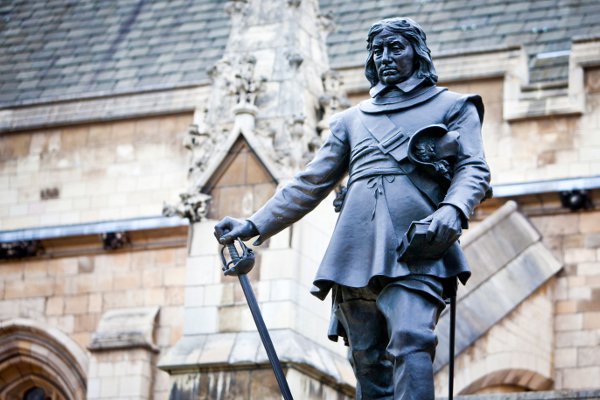AN IRISH academic at Oxford University has argued that statues of controversial historical figures like Oliver Cromwell should remain in place.
Professor Louise Richardson, the Vice-Chancellor of Oxford University, believes people like Cromwell and Cecil Rhodes, the controversial British imperialist whose bronze statue stands outside Oriel College in Oxford, were an important part of history.
Rhodes has been the subject of student protests in the past few weeks because of his legacy as a white supremacist who lived in South Africa and believed Africans were inferior to Anglo-Saxons.
A former student at Oriel College, Rhodes made his fortune in diamond mining over in Africa. After he died, he left a significant amount of money to the University of Oxford.
While some have been campaigning for the removal of the Rhodes statue for several years, the recent Black Lives Matter protests have brought the issue to the fore, with demonstrators calling for it to be removed under the “Rhodes Must Fall” campaign.
However, Professor Richardson, who is originally from Tramore in County Waterford, believes that removing statues amounts to "hiding our history."
In defending the Rhodes statue, Richardson specifically referenced the statue of Cromwell that sits outside the UK Houses of Parliament in London.
“I grew up in Ireland where Oliver Cromwell to me was what Voldemort is to my children. And yet a statue of Cromwell stands outside Westminster. Does that mean it should be taken down? No," she told the Irish Times.

Professor Richardson argued that statues served an educational purpose and were part of history, no matter how controversial the figures represented may have been.
Her comments follow on from renewed calls in Ireland for the statue of Cromwell to be removed given the terrible atrocities he was responsible for in Ireland.
However, Richardson argued that people cannot simply pretend history is different just because they do not agree with it.
She also suggested that former South African leader Nelson Mandela would not have supported the removal of Rhodes' statues.
"I think he [Mandela] was a man of deep nuance who recognised complex problems for what they were. And I don’t think he sought simplistic solutions to complex problems," she explained to the Irish Times.
The defence comes after UK Prime Minister Boris Johnson referenced the statue of Oliver Cromwell near Westminster in his own defence of London’s controversial statues.
In a post on his official Facebook page, Johnson condemned protestors over the recent defacing of a Winston Churchill statue in the UK capital, arguing that history was a complex subject and figure from it should not be judged by today’s modern standards.
"Where will it end? Are we supposed to haul down Cromwell who killed so many thousands of people in Ireland?"

